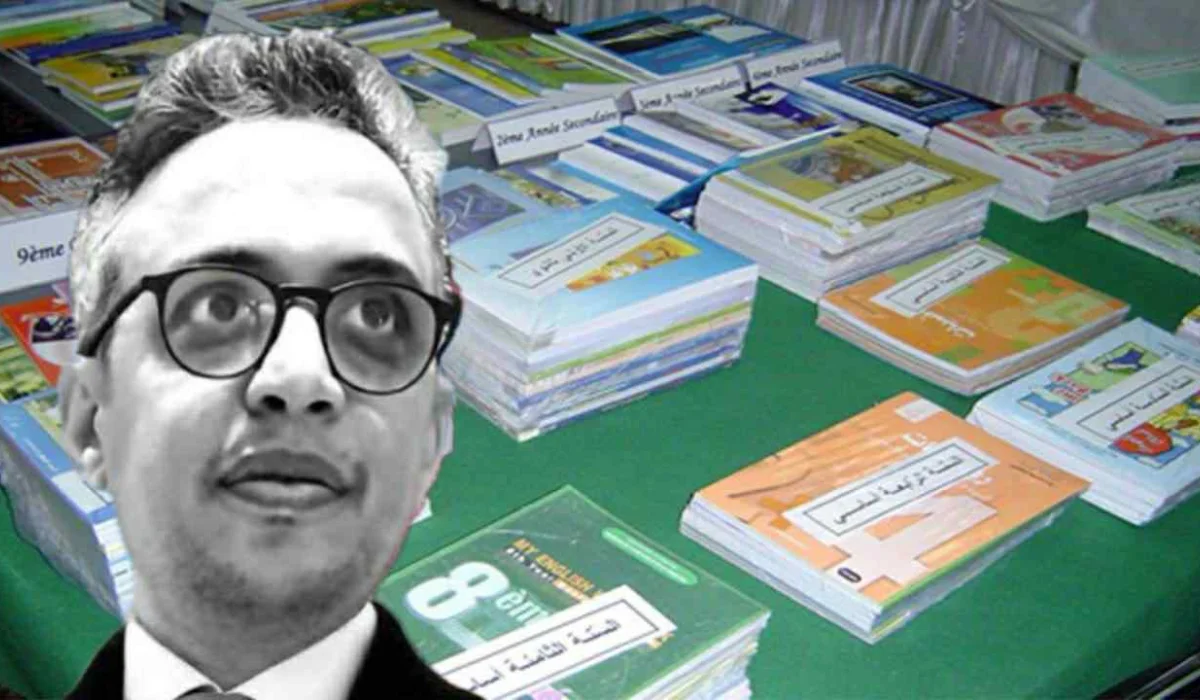In his article, Ahmed Zahir wrote:
The decision to print school textbooks inside Libya was not merely a technical measure, but a strategic step aimed at building a sovereign industry that would support the national economy, create technical job opportunities, and strengthen a culture of production and knowledge.
At the outset, the policy of localizing printing succeeded in creating a vital sector that gradually developed. Printing presses invested in equipment and skilled staff, and some were able to fully execute their contracts domestically with high quality.
It was a promising experience that proved that when the state sets a coherent industrial vision, it can transform the textbook from a bureaucratic product into an economic and cultural lever.
However, the past twelve years witnessed a clear deviation from this path.
Policies changed, and in the absence of a developmental vision, contracts were assigned to foreign companies — some of which had no real presence in their home countries or lacked operational capacity. These companies acted merely as fronts, outsourcing printing to other presses in exchange for commissions that inflated production costs instead of reducing them.
Thus, the decision intended to build the economy turned into a tool for dismantling it. The cost was reduced to a narrow accounting figure, while the state ignored that investing in printing is not an expense but an added value that generates a complete economic cycle within the local market. The result was a gradual collapse of the national printing infrastructure.
Local suppliers of paper and ink ceased operations as demand declined, losing their investments and shifting to other activities. Skilled technicians emigrated or were laid off, major presses that once formed the backbone of the sector shut down, and the value chains of transport, maintenance, and supply disintegrated. With every school year, losses accumulated, and the state’s dependence on foreign suppliers deepened.
Even after the state returned to awarding textbook contracts to local printers, the desired reform did not materialize. The crisis worsened with the adoption of short-term and unrealistic administrative policies that served only as a formal pretext to appear supportive of local production while stripping the policy of its practical substance.
Printers were given deadlines not exceeding forty-five days to print and deliver textbooks — an unrealistic timeframe given market demands and the procurement time for raw materials, which takes at least sixty days under ideal conditions. Thus, “local empowerment” became a burden rather than a support mechanism, as contracts were offered under terms that made execution nearly impossible — later used as justification to reassign contracts to foreign companies.
In addition, the absence of clear standards in selecting local printing presses for contracts stands out. Evaluation is often based solely on “production capacity,” without precise definition or measurable criteria. The concept of capacity varies between presses and is sometimes applied selectively to justify exclusion or favoritism.
This issue affects not only the selection of national printers but also the distribution of printing quotas — a stage where corruption seeps into the contracting process. True capacity should be measured by a combination of three interlinked factors: production equipment, technical workforce, and availability of raw materials.
Yet under current policies that have paralyzed the market and weakened suppliers, raw materials have vanished, technical staff have diminished, and capacity itself has become nearly non-existent. The irony is that the presses excluded for “lack of capacity” are often the genuine, operational ones, while contracts are granted to paper-based companies with no equipment or production capability — mere fronts subcontracting the work on a massive scale.
Thus, “capacity” has shifted from a technical criterion to an administrative tool for perpetuating corruption with every new contracting cycle. The focus has turned from value to price, from sustainability to deadlines — hallmarks of short-sighted policies that have destroyed one of the few self-sufficient sectors.
Every domestic printing contract creates jobs, stimulates the market, and keeps capital within the country, whereas every foreign contract drains foreign currency and weakens industrial infrastructure. It’s a simple equation that decision-makers ignored for years, resulting in a loss of trust between the state and national presses, and the collapse of the investment climate in a field that could have been a pillar of Libya’s knowledge economy.
The solution does not lie in re-centralizing printing or having the state monopolize production, but in freeing the school textbook from bureaucracy and opening the field to regulated competition.
This could be achieved by transforming textbook funding into direct support for students, through an annual grant distributed via the “Family Allowance” system, which already holds comprehensive data on all households.
By doing so, the state would shift from a monopolistic producer to a smart market regulator — retaining intellectual and academic ownership rights, monitoring prices and quality, but avoiding involvement in operational management.
This approach balances efficiency and fairness, encouraging the national market to evolve organically instead of waiting for ministerial orders.
In parallel, contract success should not be measured by cost alone but by the overall long-term economic return — in terms of job creation, supply chain stability, and capital circulation within the local economy. Long-term contracts with national presses should be established to ensure stability, provide accessible financing for raw materials, and create a permanent National Committee for School Textbooks that includes experts from education, economics, and industry, while publishing transparent annual reports on production costs.
As for the printing community itself, it bears a responsibility equal to that of the state. Reform cannot be achieved merely by complaining about government policies but by building a professional system capable of self-regulation.
National printing houses should unite under an independent professional body that sets clear standards for technical and production capacity, establishes fair evaluation mechanisms, and ensures balanced contract distribution. This organization must also adopt transparent professional criteria—defining the elements of capacity from equipment to workforce to raw materials—and enforce them across the sector.
Simultaneously, it is vital to purge the industry of fake companies and paper entities that have tarnished its reputation and undermined fair competition. Serious printers must present a unified vision to restore discipline to the market—transforming it from a battlefield of rivalry into a structured, cooperative production arena.
A strong and transparent professional body would not only protect workers’ rights but also give them a voice in shaping future policies—turning the national printing industry into a key player in development rather than a victim of its failures.
What Libya’s printing industry faces today is not merely a sectoral crisis—it is a sign of deep economic and administrative dysfunction. The school textbook is not a disposable commodity consumed by ministries each year; it is a measure of educational quality and a symbol of the state’s capacity to produce knowledge with its own tools.
Restoring the textbook’s status as a national product is not just a step for the education sector—it is the real beginning of building a knowledge-based economy that restores the state’s dignity and the citizen’s role in the development equation.






